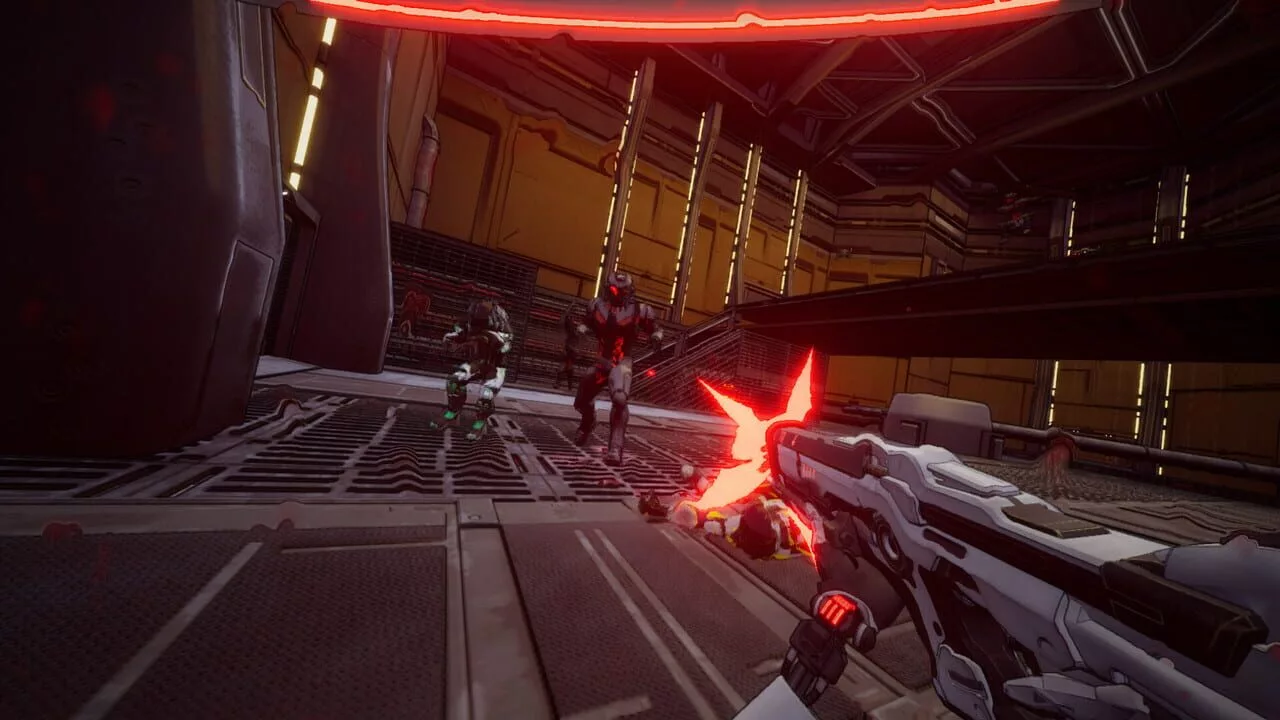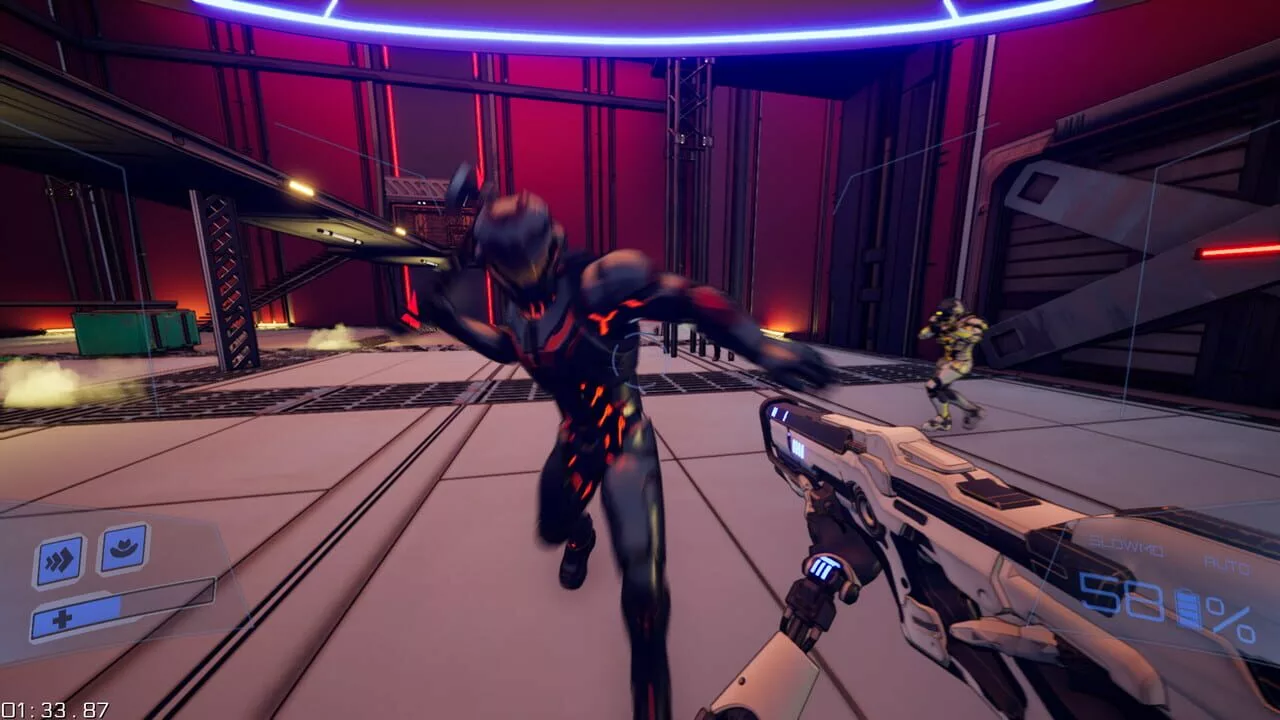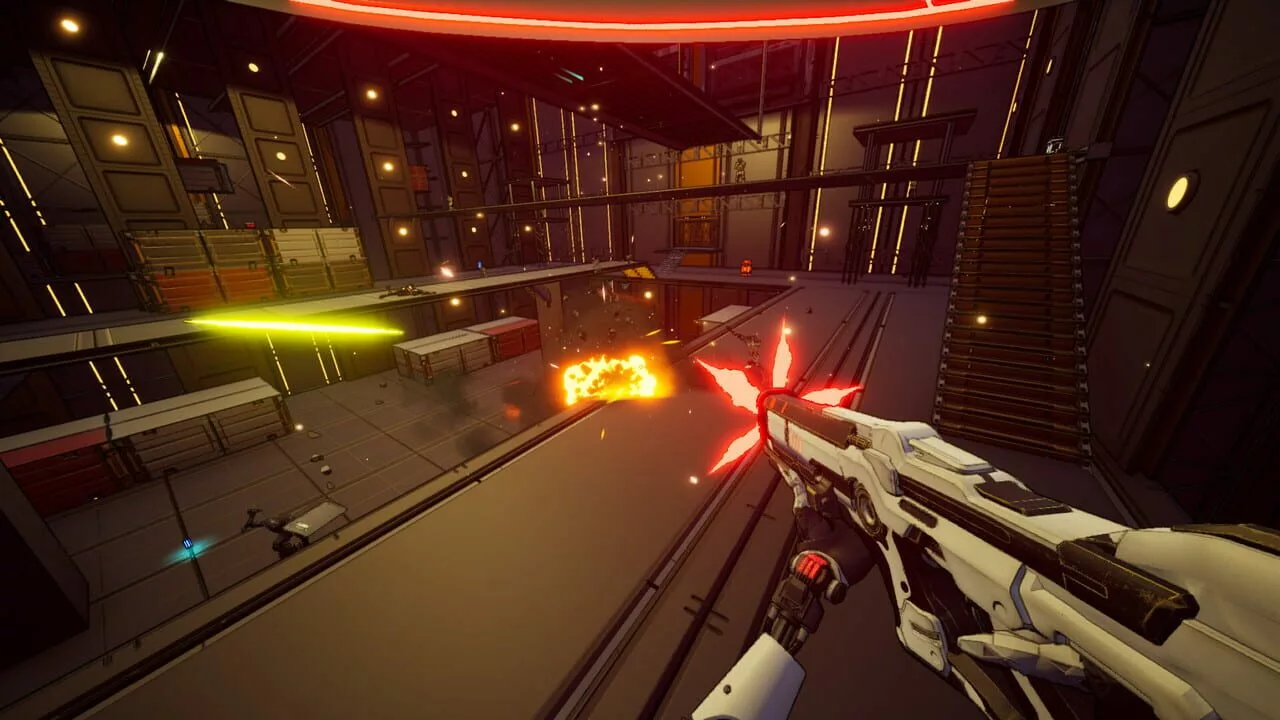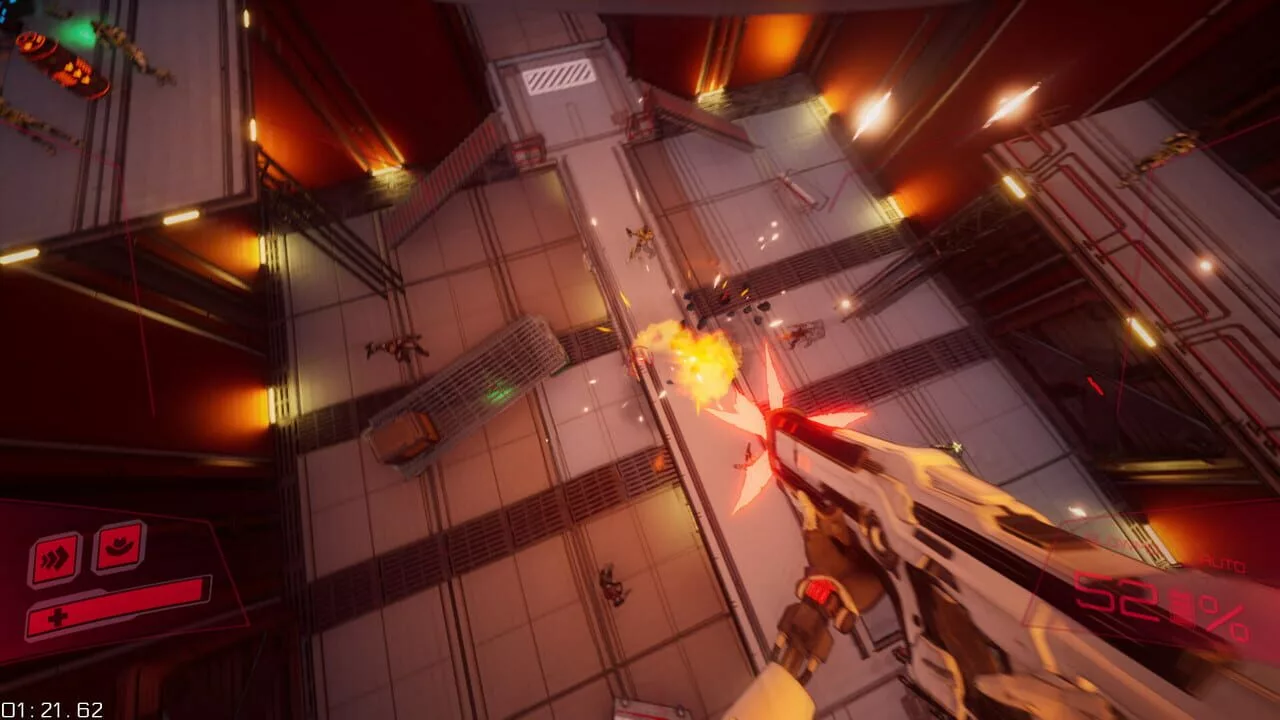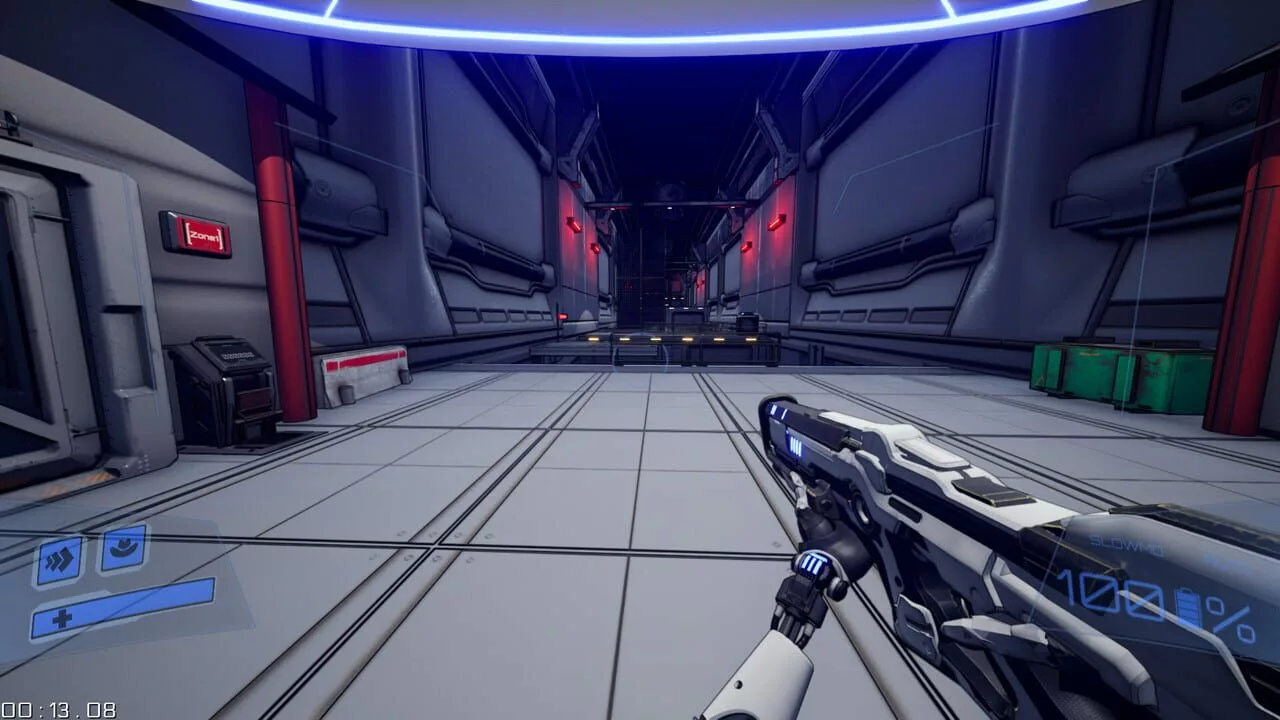
Space Hat (2024)
Genres:Adventure, Indie
Themes:Action
Game modes:Single player
Story:Space Hat is an adrenaline-fueled, fast-paced FPS game that combines intense combat with well thought out platforming sequences. In this futuristic sci-fi world, the player assumes the role of a cyber bounty hunter equipped with a special hat that grants the power of teleportation.
Vote to bring this game to GOG and help preserve it.2
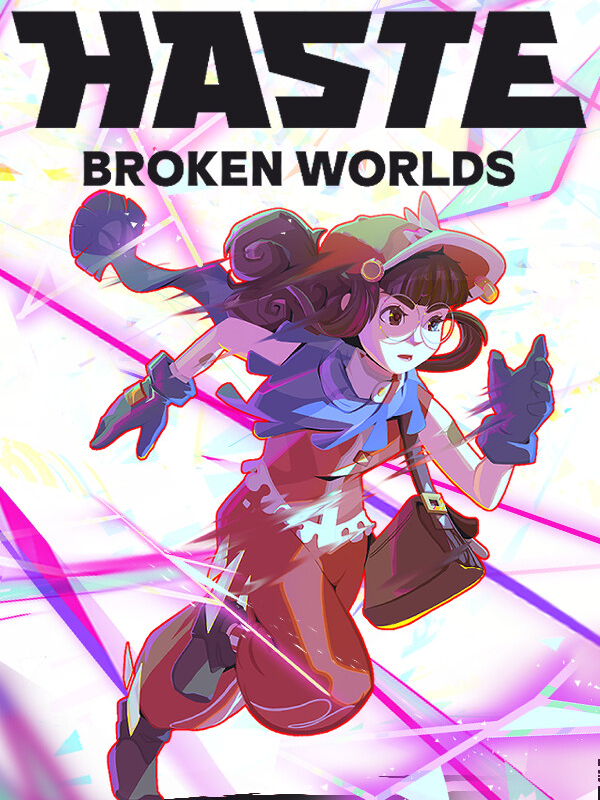
Haste: Broken WorldsHaste: Broken Worlds is a fast-paced running game where you race to reach the portal at the end of a collapsing universe. Run through an infinite amount of levels where no world is ever the same. Between each attempt to complete your run you have the chance to explore a hub world, gather your strength, meet characters and practice your skills before heading out for another adventure. Each run has its own unique challenges with clues to figure out why the worlds are breaking apart.Action
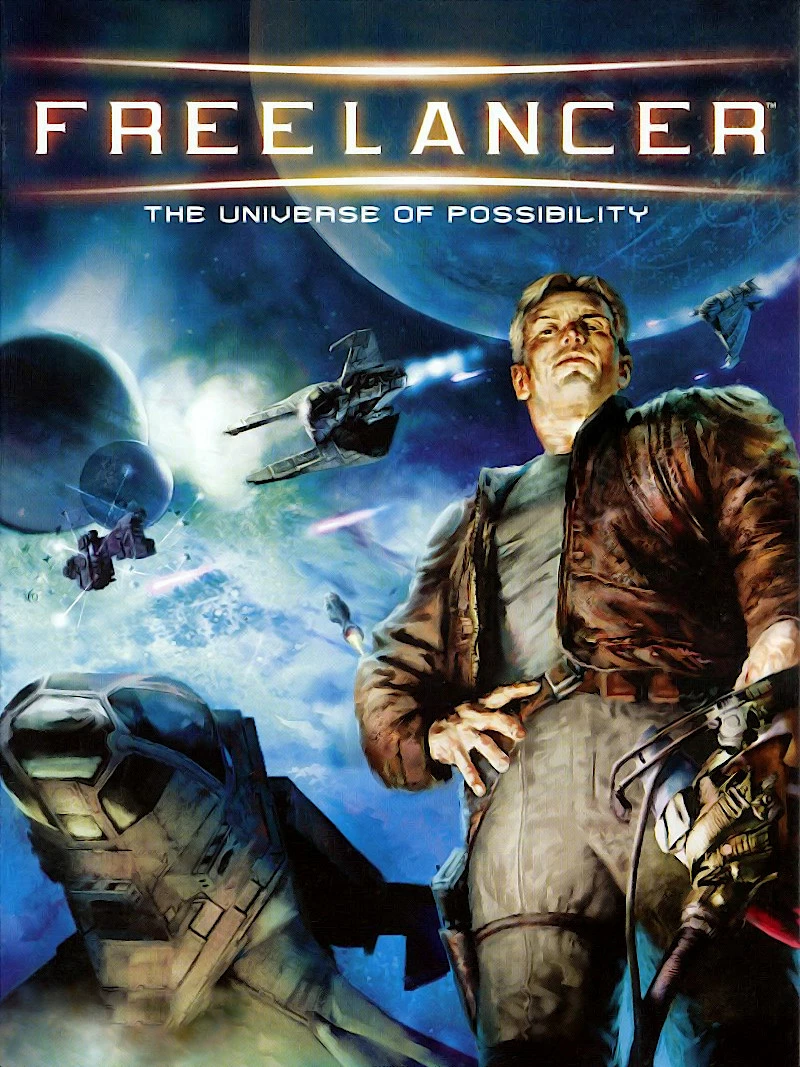
FreelancerEight hundred years prior to the start of our story, bitter conflict divided all of mankind. A handful of colonists struck out on their own to begin anew - far away from the Earth and its turmoil. Several ships were launched with enough equipment and supplies to give the hundreds onboard a fighting chance - but since the area around far-off Sirius had never been surveyed, no one really knew what to expect. What they found was a new frontier of free-flowing natural resources, unexplored territories, great wonders and lurking dangers. Each ship, representing the clusters of people and their earthly place of origin, settled into different parts of the galaxy pre-selected by their ship-board computer to give them the best chance of survival.
Life was hard in the beginning, but over the 800 years the different colonies prospered and expanded their territories, claiming more and more systems for their own. Survival and propagation eventually led to growth and profit as each of the colonies developed specialties and fostered commerce. As the colonies grew and time passed their connections with their roots on Earth dwindled and they lost their memories of the conflicts of the past. Soon their attention was dominated by new, more immediate conflicts. Feelings of lost ancestral connection spurred anachronism in the look of the great cities, and created a somewhat distorted image of each colony's cultural heritage. In the ever-expanding outer edge of the territories, frontier lawlessness prevailed.
The Houses: Each shipboard colony that left Earth carried some memory of its origins in its name. The Liberty carried Americans, The Bretonia flew from The United Kingdom and surrounding territory, The Kusari from Asia, and the Rheinland launched with Germanic cargo.
As each ship settled and colonies began to expand, they knew little about each other and their advancing development. Finally, little by little, the individual colonies found each other and began to set up trade routes to link their systems for commerce and solidarity.
Today, with each colony firmly rooted in its respective corner of the galaxy, the colonies rely heavily on each other for trade and industry but also compete for resources and new territories in the Border Worlds. The colonies mandate member governments in "The New Alliance" within the Sirius sector. To control conflicts, each colony has forged alliances and treaties with others as they have grown. Competition remains fierce, however. Struggles rage for supremacy in business, commerce, resources, power and control. There can be tenuous peace between colonies' political agendas, but the grabs for holdings constantly unsettle the volatile frontier.Our Pick Top Trending Science fiction Sandbox
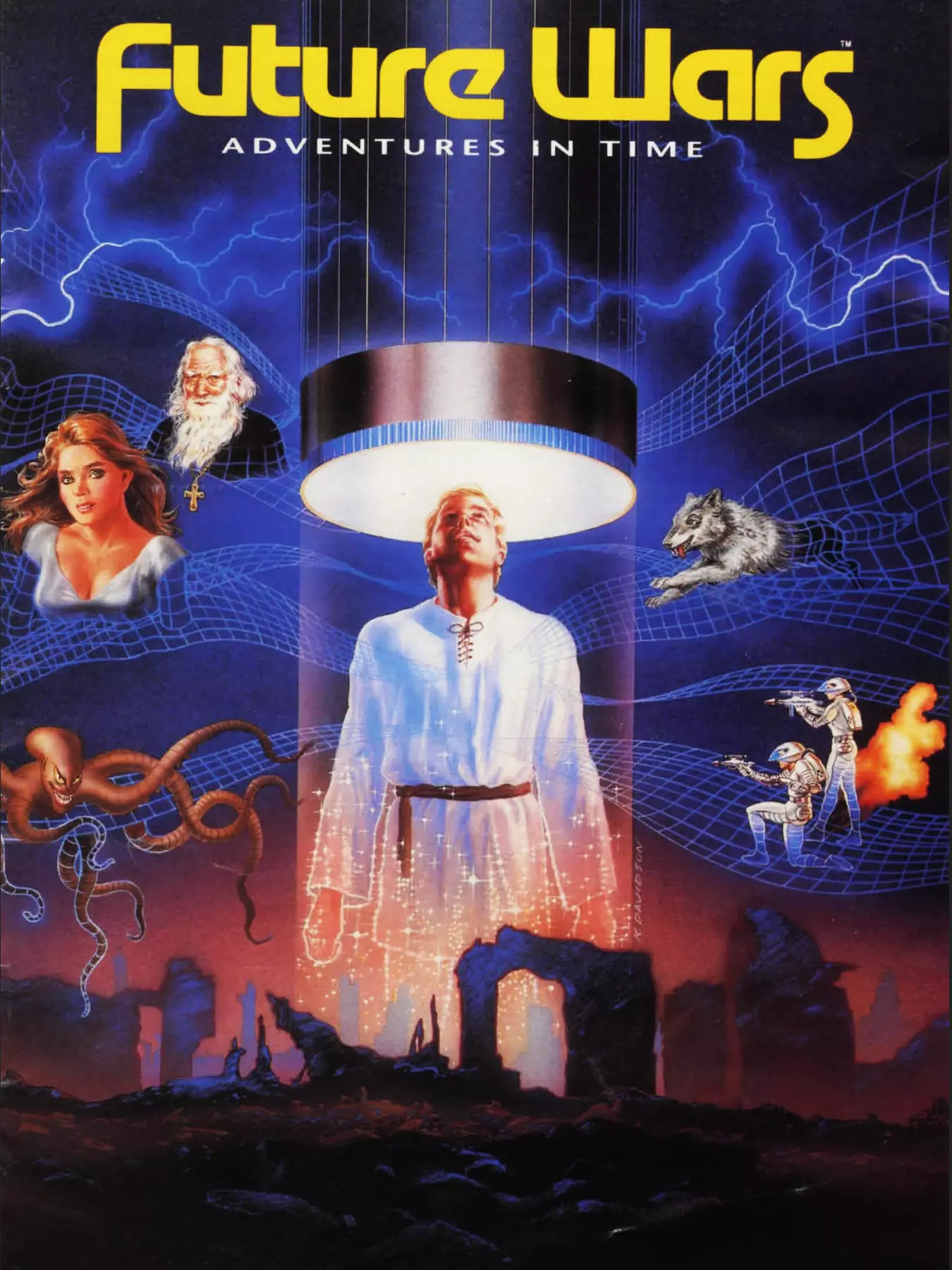
Future WarsIn the year 1989, a simple window cleaner is working outside of a skyscraper. Intending to play a prank on his angry boss, the unlikely hero discovers a secret passage leading to a time machine along with mysterious alien documents. Operating the device transports the protagonist to the year 1304, where he is given a seemingly ordinary task of rescuing a lady in danger. However, he soon finds out about a much more.
The first in what was supposed to be a series of games about time travel but no other games were made.Science fiction
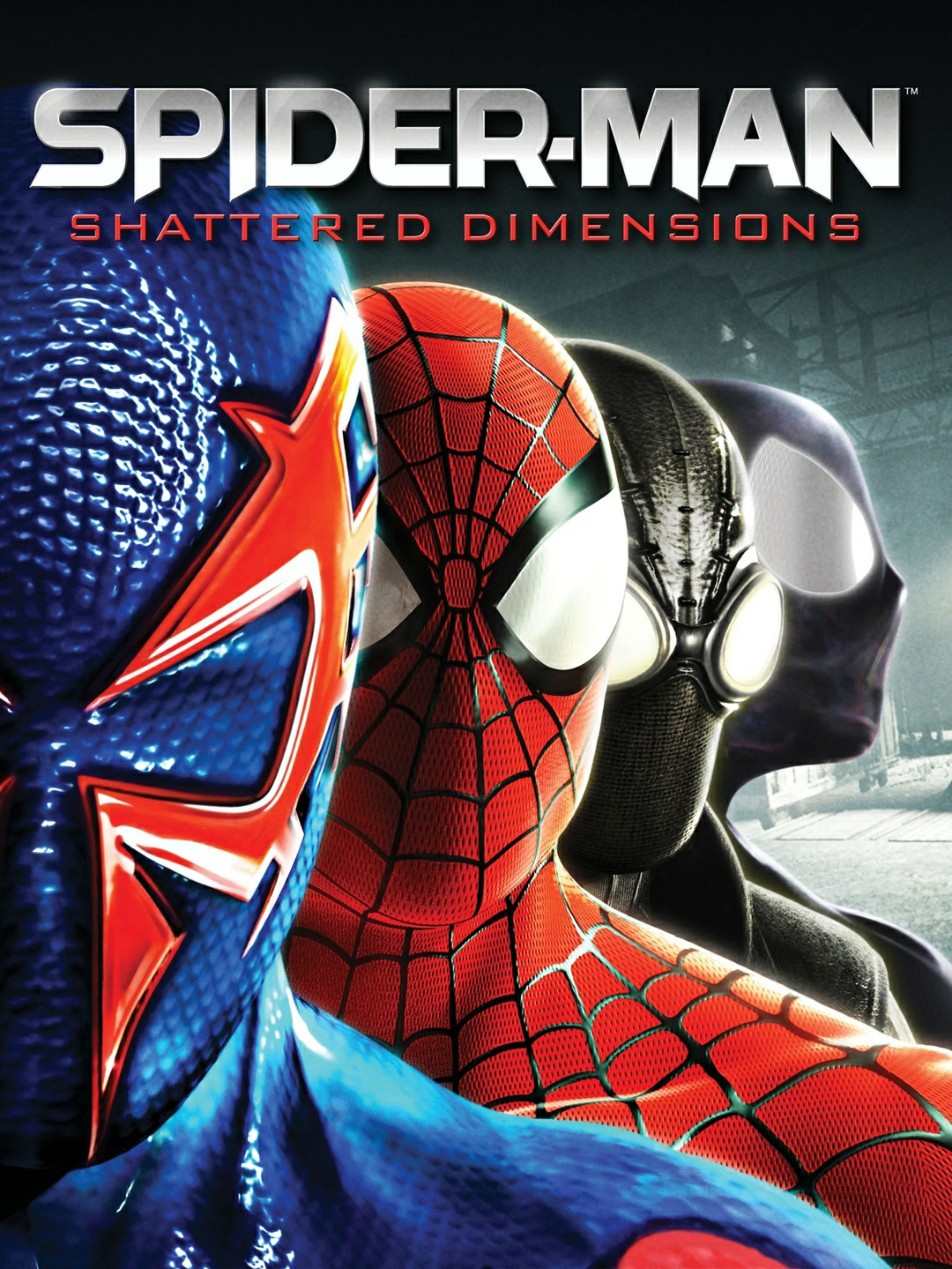
Spider-Man: Shattered DimensionsSpider-Man: Shattered Dimensions blends together the many alternate universes of the world-famous webslinger with four unique takes on Spider-Man's history in comics. In the game, Spider-Man attempts to retrieve a piece of a tablet that's been scattered across multiple parallel dimensions, and in doing so he crosses over to storylines famous to comic book aficionados as variant tellings (including The Amazing Spider-Man, Spider-Man 2099, Spider-Man Noir & Ultimate Spider-Man) of the Spider-Man mythology.Action Science fiction Stealth
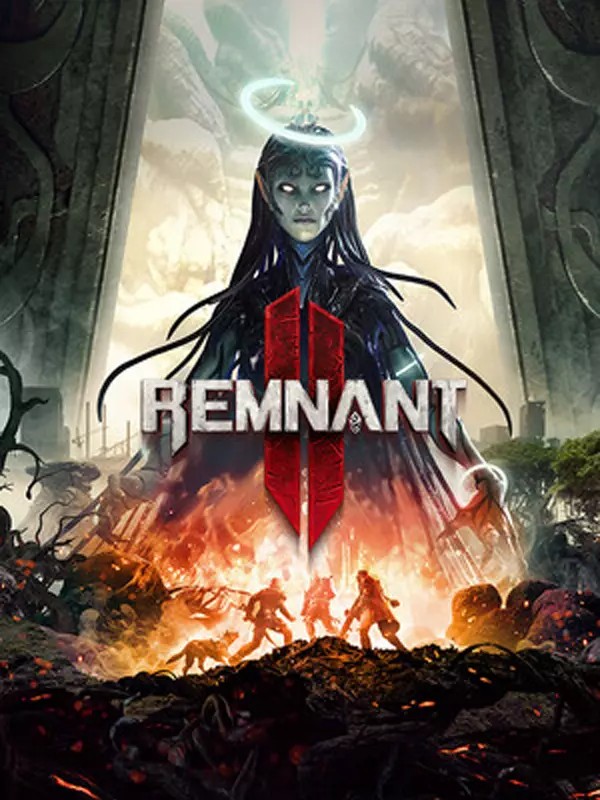
Remnant IIRemnant II is the sequel to the best-selling game Remnant: From the Ashes that pits survivors of humanity against new deadly creatures and god-like bosses across terrifying worlds. Play solo or co-op with two other friends to explore the depths of the unknown to stop an evil from destroying reality itself. To succeed, players will need to rely on their own skills and those of their team to overcome the toughest challenges and to stave off humanity’s extinction.Action Fantasy
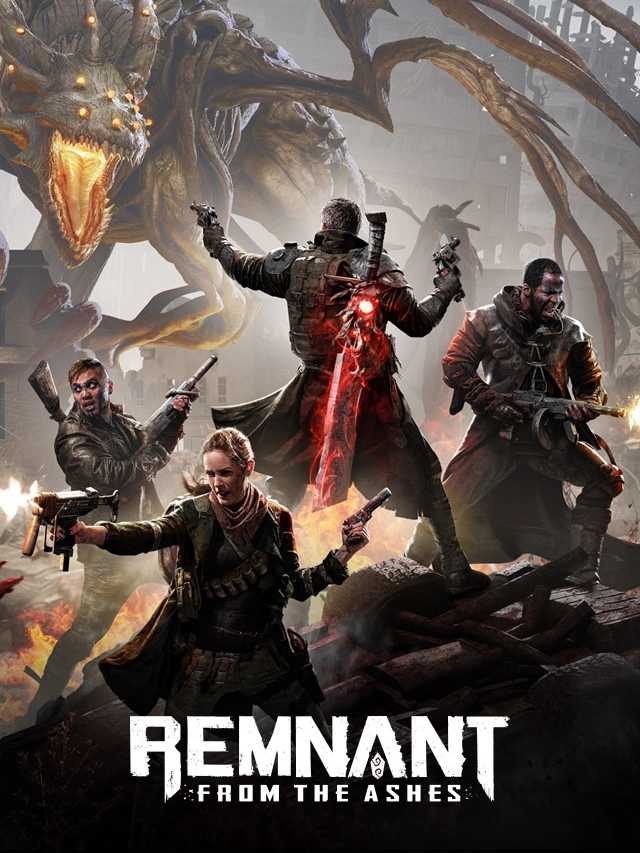
Remnant: From the AshesThe world is in ruins. Only a remnant of mankind remains, hunted to near extinction by horrors from another world. As one of the few survivors left, you will venture into portals to fantastic realms to gather the resources and firepower needed to fight back and retake what was lost.
Remnant: From the Ashes is a third-person survival-action game set in a post-apocalyptic world overrun by mythical creatures. The game provides players and up to three of their friends with a unique, customizable gameplay experience filled with intense shooting and melee combat, gear and weapon crafting, character progression and dynamically-generated levels that offer an infinite number of ways to explore and take on deadly monsters and epic bosses.Action Fantasy Survival

Death GateDeath Gate is a classic adventure game from the much revered Legend Entertainment. The studio is known for developing games that include exceptionally well crafted puzzles and a wacky sense of humor which frequently breaks the fourth wall and plays to a wide assortment of offbeat puns. Moreover, the company has emerged with a winning streak of fantasy and sci-fi games based on popular literature adaptations. The most famous of these are Frederick Pohl's Gateway and Terry Brooks' Shannara.
In 1994, Legend Entertainment has chosen to adapt not 1 book but the whole series of 7 books by Margaret Weis and Tracy Hickman known as The Death Gate Cycle. The original release of the game even includes a special gift for fans of the book series, namely an exclusive short story written by the same authors that tells some of the history of the mysterious Assassin's Guild from the series.
In Death Gate, the player is cast in the role of a freshly freed Patryn—a young, brave wizard named Haplo. By his deeds in the Labyrinth, he has gained Xar's trust to be sent as a scout to the other 4 realms. The way between them leads through a mystical portal known as the Death Gate. For his journey, Haplo is handed not a single but several quests to complete. He must first explore the realms, learn about the new lands, and find the pieces of the World Seal that will allow the reformation of the world to its original whole. He must also retrieve as much of forgotten magical lore as he can, and find runes that will allow him to enter all the other realms. Finally, and most importantly, he must find out what has happened to the Sartan who seem to have vanished somewhere long ago, so that Xar will be able to bring them to the proper Patryn justice.
The game, by taking inspiration from the first 4 books, creates a certain unique experience for the player that stands out among other fantasy adventures. There is an unusually layered structure based on the initial premise of the 5 separate realms, since the consequences of the sundering run much deeper than mere differences in landscapes. From realm to realm life conditions vary enormously, including geography, history, fauna, flora and astronomical bodies. For each realm, the population is divided into very specific societies, although many attributes of each race remain common. Several royal families, powerful guilds, and wealthy, independent merchants all have their own specific goals and ambitions that are not at all connected to the grand schemes of the Patryn and the Sartan, which they mostly are unaware of at this time after centuries of their absence. The distinctiveness of each culture's circumstances and the individual diversity of the larger and smaller schemers within the cast of characters give a special magic and wonder to the proceedings in the game, especially when the player visits a new realm for the first time and starts exploring it. The worlds possess a mysterious, intriguing flavor, but with a touch of whimsical surprises from nearly everywhere. Each encounter with Xar between travels reveals more information concerning the whole mechanics that connect these realms.
Death Gate contains some exceptionally good voice acting. This is especially true for Henry Strozier who plays the role of Xar. He carries a low, charismatic, and authoritative voice that perfectly befits a character with a brave heart, long experience, deep wisdom, but a good share of arrogance. He shines for good measure too, since the player will spend more time conversing with his character than any other in the game. Haplo, who is only heard in conversations, voiced by David DeBoy, does not have a plain, uninteresting voice either. He sounds slightly arrogant and lordly like his master, but also rather youthful, yet manly enough to give an air of independency.
The MIDI music in Death Gate is very well done. The compositions are perfect for an epic fantasy setting. The tunes are often light and comforting, but they can change dramatically to a more majestic tone when visiting the king's palace and to a darker motif when exploring the undergrounds of Abarrach, the vicious Labyrinth, or the deadly Assassin's Guild.
Aside from Haplo and Xar, several other characters from the books also make an appearance in the game. Many of them, however, have been greatly simplified and reduced to only episodic roles with little development. Many major characters from the books are missing altogether, most notably Alfred, whose role is crucial in bringing out Haplo's characterization in the literary originals. On the other hand, some of the memorable archetypes from the books are used in new, interesting ways. For example, a boy named Bane has been recast into a different child with a different life and social standing, though both share a very similar personality. The character that stays most true to the canon is the whimsical, crazy wizard Zifnab, who appears in all his pun infested glory. In general, the plotlines are less violent and happier than those in the books, and the characters show less moral ambiguity.
Death Gate plays like a traditional point-and-click adventure game, but like a role-playing game it is as much about being free to explore the fictional world as about following a foreordained storyline thread. There is quite a bit of narrative text, diaries, historical documents, and dialogs to sieve through. They are all well written and are rather fascinating, since everything is directly connected to the quests the player needs to complete or the puzzles the player needs to solve. There is a fine dose of humor in the game too, but nothing so unsubtle that may distract from taking the main conflicts of the story seriously. From this stance, Death Gate is actually quite a departure from the largely comical gallery of previous game titles from Legend Entertainment.
The puzzles in Death Gate are a bit on the easy side, but the enjoyment they give is very well balanced by their ingenuity. The wealth of subplots, quests, plot twists, and deceptions add a lot of tension to the player's own proceedings. There is a certain logic and buttons based puzzle that is rather hard to beat. However, the player can ask for help from the game to solve it (or even skip over it). In general, the difficulty level of the game lies somewhere between easy and medium. The player can die in the game, but there is an option available to undo the player's last fatal action.
Comparison with the books quickly reveals some of the obvious budgetary or time constraints the developer must have faced during Death Gate's development. Pryan, the realm of fire, is build of elements taken not only of this realm in its original form but also of Chelestra, the realm of water. Consequently, the latter realm has shrunken to a very limited scope in the game. The smallness of Chelestra comes in the game as a particular disappointing revelation, since it is the last of the elemental realms that the player visits.
The interface used in Death Gate has evolved from the original Legend Entertainment's interactive fiction interface. There is an always available standard list of commands (such as Take, Look at, or Use) for the player to choose from, reminiscent of Lucasarts' SCUMM interface. In addition, extra action commands specific to an object appear when it is clicked. For example, when clicking on a door, apart from the standard list of verbs, there are added options to unlock, knock, or eavesdrop on the door. There are many actions which are not necessary to complete the game but which trigger funny responses specific to the situation. Altogether, the interface is a clever compromise between the sense of freedom achieved through a text parser and the simplicity of contemporary point-and-click style.
Gameplay in Death Gate draws on a few gimmicks that are typical of role-playing games. For some parts of the game, the player is able to have a party of several characters. There is also a process of collecting magical spells, even though they have been tweaked for solving puzzles instead of combat. A spell is constructed by connecting runes in a combination. After that, it is traced in the air by Haplo with his hands to bring the spell into motion. The player will be able to learn many spells in the game, mostly from the mensch. This is an important diversion from the canon, as the mensch from the books possess a different kind of magic altogether.
The high resolution graphics of the game will remind fans strongly of fantasy literature illustrated covers. The characters are beautifully detailed in high resolution, but rarely fully animated. However, their faces are always incredibly alive, especially in conversational close-ups. When exploring the game world, the player will notice many intricate but small animations in otherwise generally static sceneries. Major events occurring in the game are partially described in narrative text and partially presented as cut scenes. Sadly, the number of background illustrations in the game is a bit limited. All locations are shown from only a single point of view. Sometimes, the player is drawn to something interesting drawn at the edge of an illustration but is unable to look closely to find out more about it.Fantasy
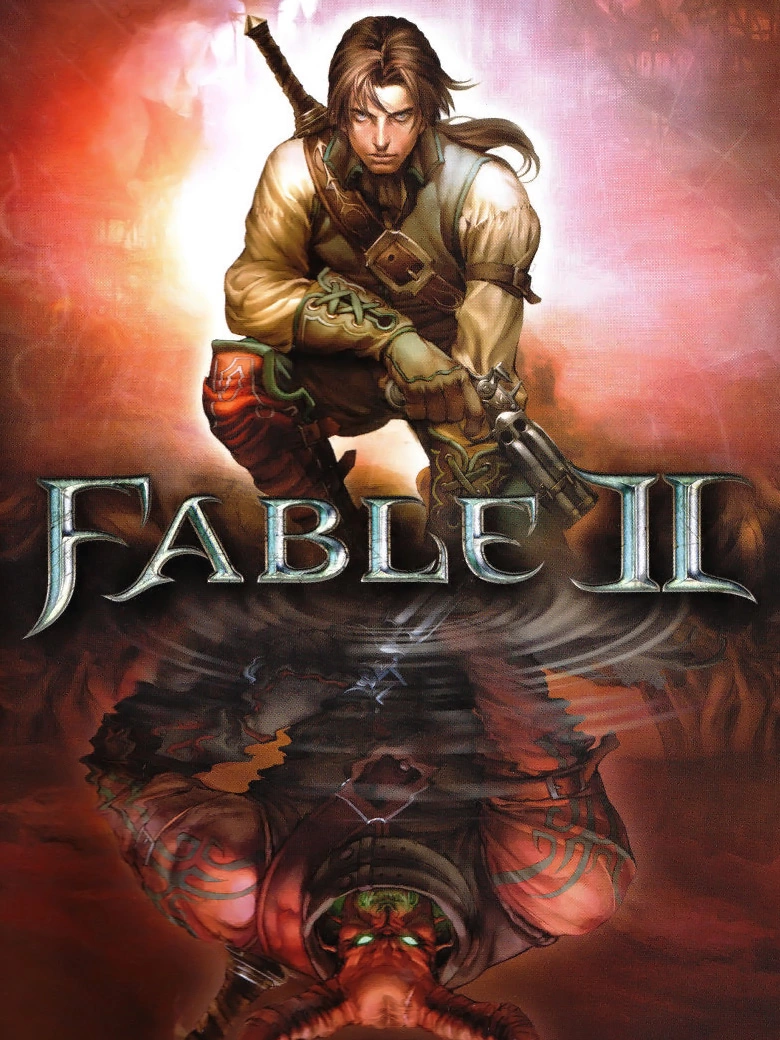
Fable IIFable 2 is the second game in the fable series by Lionhead Studios, it is an open world role-playing game. It has a simple story line where the hero needs to save Albion from the evil Lord Lucian by collecting together the other three heroes to defeat him. Interactive cut-scenes are a large part of the game however the main character never speaks and all dialogue is uncontrolled.
The game features a large variety of game play and freedom, allowing a player to shape the world around and the characters appearance and moral standing based on decisions throughout the game. The player can also get married both same and opposite sex and bring up children to childhood but no farther, expressions are a lot more interactive with NPC's than beforeTrending Open world Action Fantasy
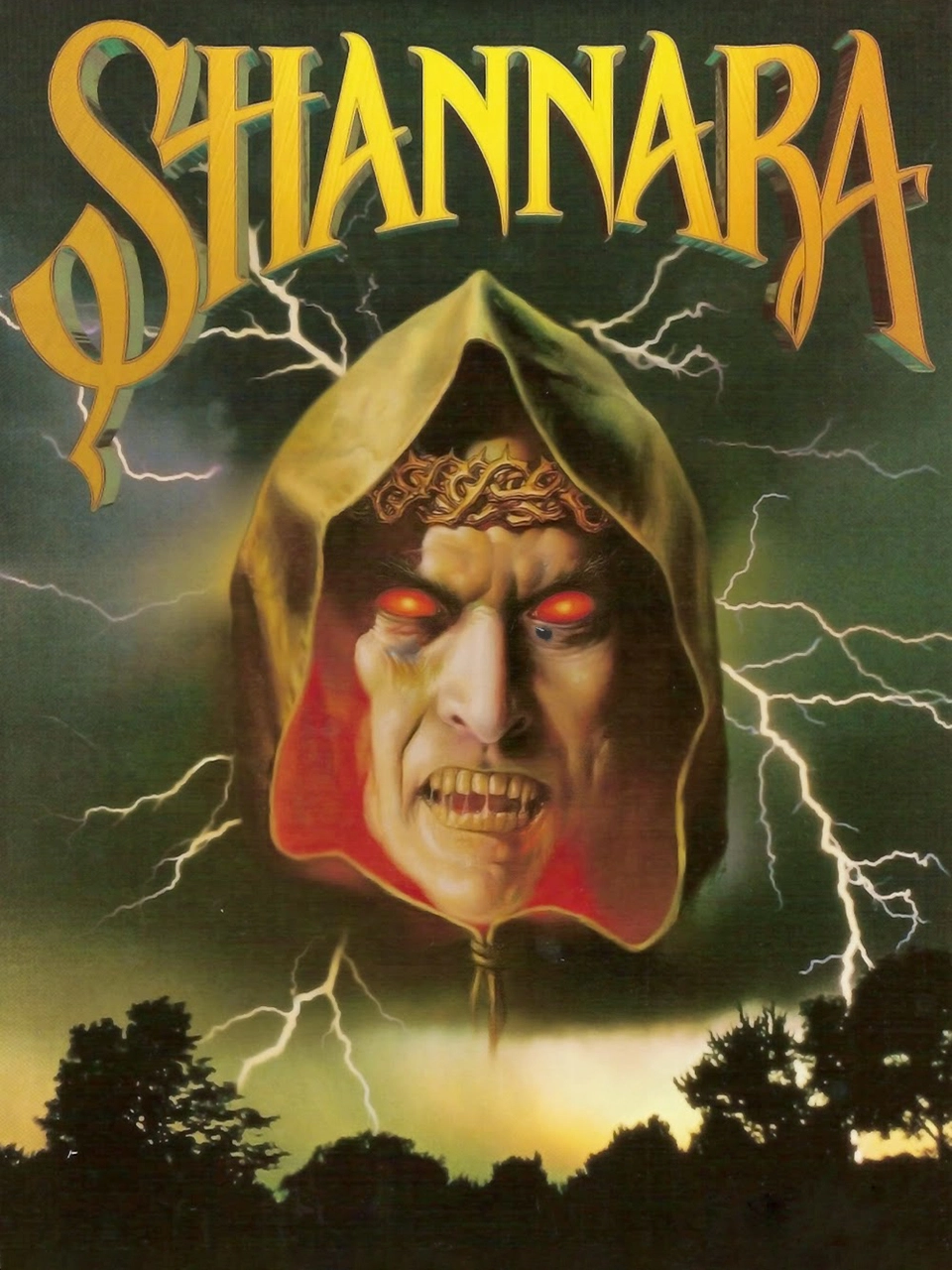
ShannaraShannara is a computer game released in 1995 for DOS and Microsoft Windows. It is based on the Shannara series of books by Terry Brooks.
The game has some elements taken from RPGs, such as top-down world-map traveling and occasional turn-based battles. However, there is no real role-playing system in the game (statistics, experience points, levels, etc.). The battles serve to emphasize the danger of traveling the wilderness, or appear as story-related events; sometimes, they are treated like puzzles, with specific actions leading to victory.Fantasy
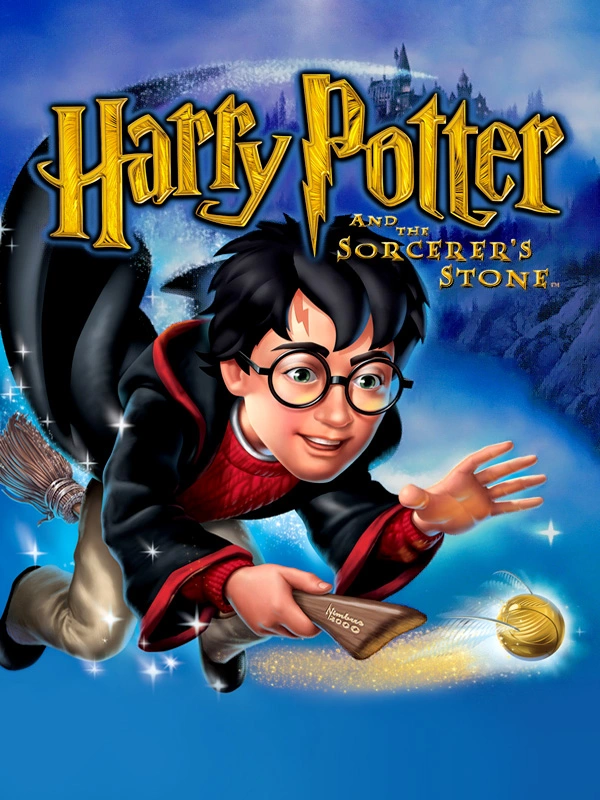
Harry Potter and the Sorcerer's StoneHarry Potter and the Sorcerer's Stone is the first Harry Potter video game for the PlayStation, and one of several different games based on the book and movie. This version is a three-dimensional action adventure, where Harry must complete a number of challenges in order to pass his first year of studies at Hogwarts School of Witchcraft and Wizardry. Successful completion of the tasks often results in house points for Harry's house Gryffindor and failure in some deducts points, so the race for the House Cup can stay open until the end.Action Fantasy
